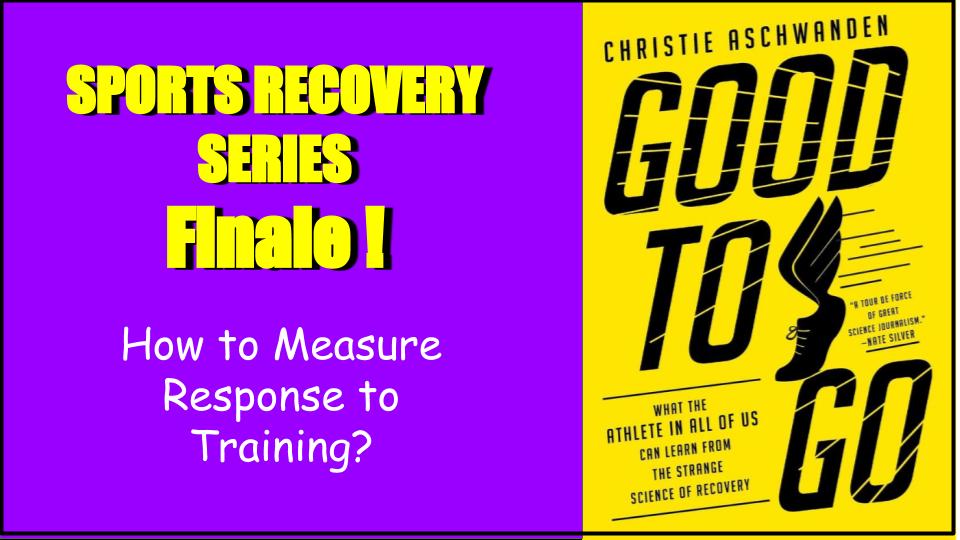What objective measures are best to evaluate response to training?
In this day and age, you would think, there are some sophisticated objective tests or measurements that can be used to optimize training, recovery and predict how much an athlete should and shouldn’t do. Well, there really aren’t any. In this study, objective measurements such as heart rate monitoring, blood markers (such as hormone levels, immune cell counts, etc), oxygen consumption did not really change in response to training loads for the most part (1). However, subjective measures of mood, stress, fatigue, etc all were much more correlated with training loads. What this means is that you can tell based on how you feel if you had a hard training session that was good or that you overdid it and need more rest.
My recommendation
Subjective measures are much better to monitor your overall wellbeing. As the saying goes, “You know your body better than anyone else.” You know your body better than any tests as well. You have to self-monitor your training and listen to what your body is telling you. If you need a break or more rest, then you need to adjust your training accordingly instead of following such a strict regimen you can’t adapt to how you respond to it.
Summary
As you age, you need more rest and recovery between training sessions, versus younger. One study showed muscle recovery was slower in triathletes over 50 versus those younger than 30 (2). For anyone staying active as they age, which we all should shoot for, you just need a little bit more maintenance. You need to warm up a little before activity, cool off after, and take care of your nutrition. The biggest take away I’ve learned from researching recovery after sports or working out is it’s best to listen to your body. Work smarter, not harder. Drink when thirsty, eat (healthily) when hungry. Get as much sleep and rest as you can. Do whatever modalities such as heat, massage, foam rolling, stretching, sensory deprivation, etc that make you feel better as long as it’s safe and a reasonable expense to you.
Want to Know More?
Request an Info Packet to learn more about our procedures.
References
1. Saw AE, Main LC, Gastin PB. Monitoring the athlete training response: subjective self-reported measures trump commonly used objective measures: a systematic review. Br J Sports Med. 2016;50(5):281–291. doi:10.1136/bjsports-2015-094758
2. Doering TM, Jenkins DG, Reaburn PR, Borges NR, Hohmann E, Phillips SM. Lower Integrated Muscle Protein Synthesis in Masters Compared with Younger Athletes. Med Sci Sports Exerc. 2016;48(8):1613–1618. doi:10.1249/MSS.0000000000000935
